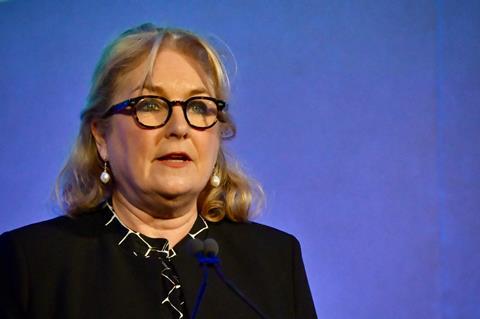The lady chief justice paid tribute to judges travelling the world ‘armed with tins of Earl Grey tea and clutching copies of Magna Carta’ as part of their international work as she launched a new judicial strategy for international engagement last night.
The strategy sets out the reasons for international engagement, sets strategic priorities and advises judges on how to engage safely and effectively. It was launched at the Royal Courts of Justice with speeches by the lady chief justice and Lord Justice Dingemans before invited guests.
In her speech the LCJ paid tribute to Lord Justice Dingemans and Mrs Justice Cheema-Grubb who are stepping down from their roles as lead judge for international relations and chair of the international training committee. Lord Justice Snowden is the new lead international judge while Mrs Justice Eady will take over as chair of the international training committee.
In the past year the judiciary engaged with 52 countries, ‘a dozen’ international associations and multilateral organisations and welcomed more than 100 judges from countries all over the world including Albania, Nepal, Ghana and Ukraine, the LCJ said.
She added: ‘The pre-eminent reputation of the UK in international diplomacy is of course well-known, and as a country we are committed to promoting the rule of law in international affairs. Perhaps less well-known is the extensive work of the judiciary of England and Wales to support these efforts through judicial diplomacy. Members of the judiciary have for many years been leading participants in international judicial organisations and the providers of training, mentoring, support and guidance to judges in many jurisdictions across the world.’

Read more
Lady Carr acknowledged 400 hours of training online and overseas provided by the Judicial College, the launch of an online peer-to-peer mentoring scheme for overseas judges to connect with judges in the UK ‘all on a tiny annual budget, which stood last year at £169,000’.
Paying tribute to the judicial office’s international team led by Matthew Gaunt, Lady Carr said: ‘Matthew and his team have to put up with judges who are not always as worldly wise as you might think - forgotten passports, dropped shoes, lost luggage and room keys (and actually, lost judges), wardrobe malfunctions – you name it they have seen it. However meticulous the planning, flexibility is always required – last minute meetings with heads of state spring to mind.
‘And there can be sometimes be the odd Heath Robinson moment as we travel the world armed with tins of Earl Grey tea and clutching copies of Magna Carta.’
Speaking of the new strategy, she said its priorites fall under five topics: promoting the rule of law and a focus on helping improve the capacity of courts around the world; taking a leading international role in promoting innovation in business law; encouraging cross-border understanding in family law; exploring how technology (including digitisation and AI) can save time and costs; and continuing to engage with other jurisdictions on how to address the common challenges in environmental law.
She added: ‘Taken collectively, these priorities allow us to solidify our relationships with other jurisdictions across the world, identify new areas for development and build meaningful connections with new international partners. While maintaining and progressing our soft power requires plenty of domestic work, it is also crucial to deliver on the international stage. ‘We are all operating in a challenging fiscal and geopolitical environment. I see this not as a threat but an opportunity for us.
‘The UK is uniquely well qualified to show leadership in times of global instability and uncertainty because, more than anywhere else, our jurisdiction offers a steadfast adherence to the rule of law and a longstanding reputation for excellence, amongst other things, in the provision of dispute resolution.’
This article is now closed for comment.



























1 Reader's comment